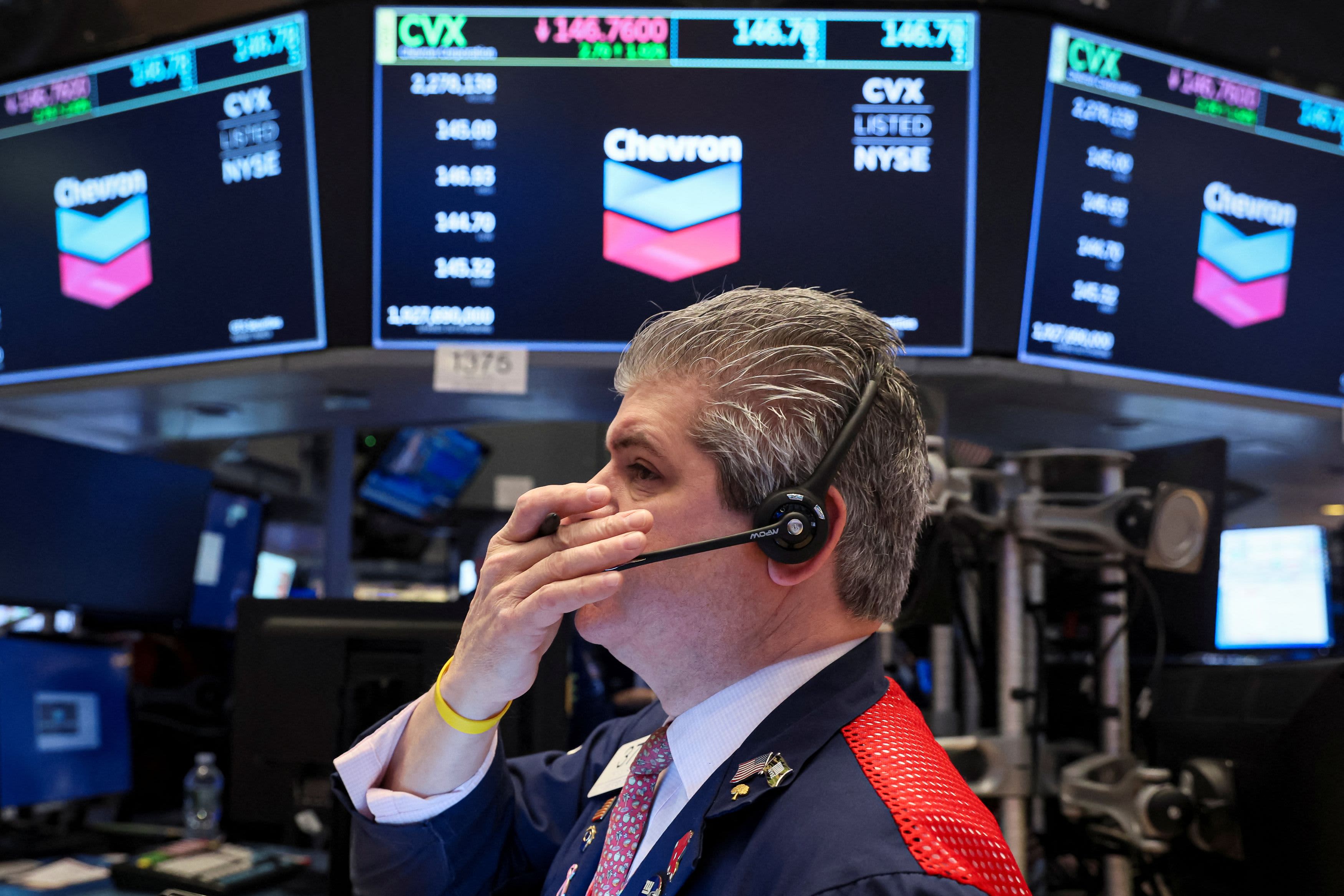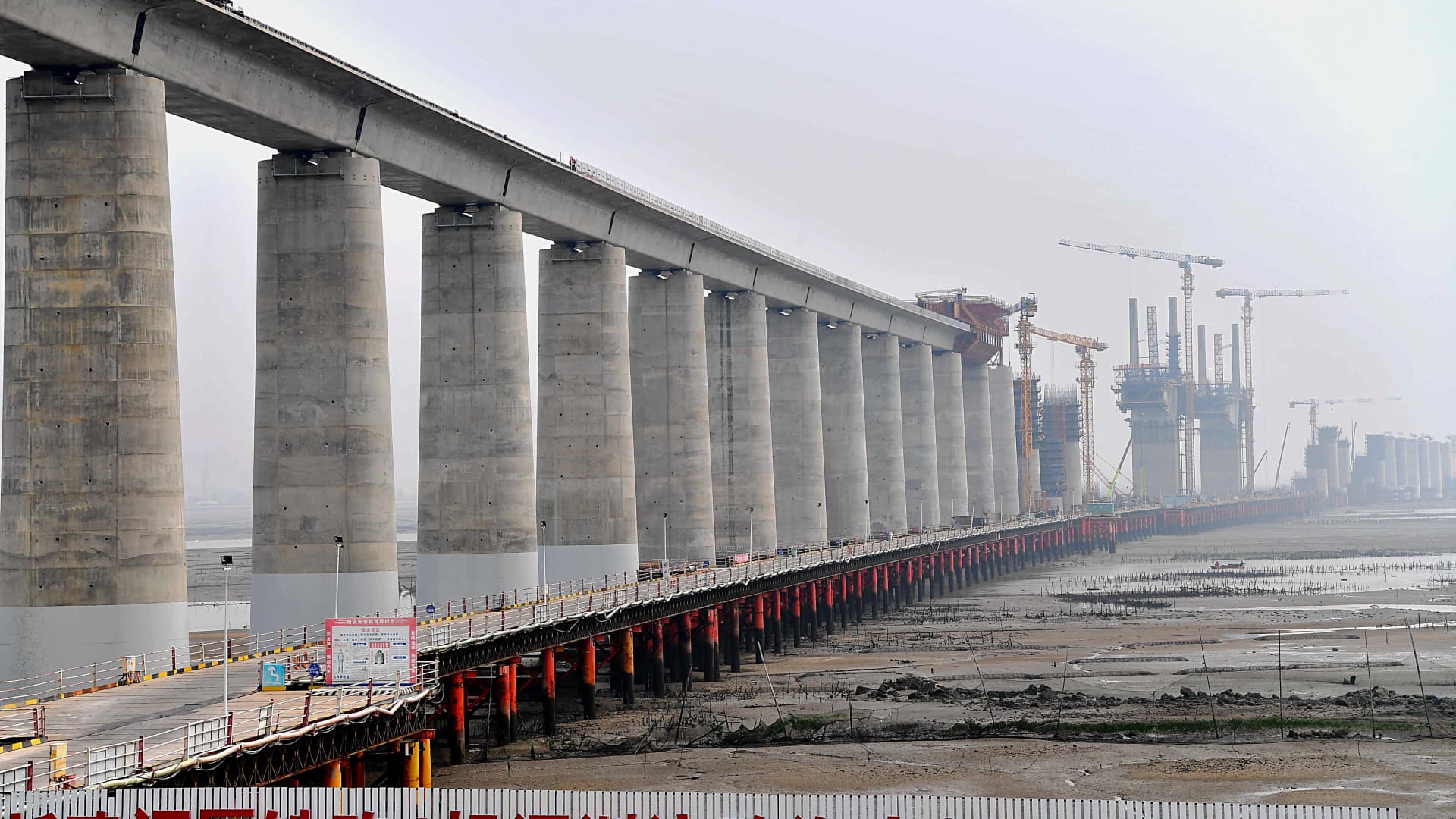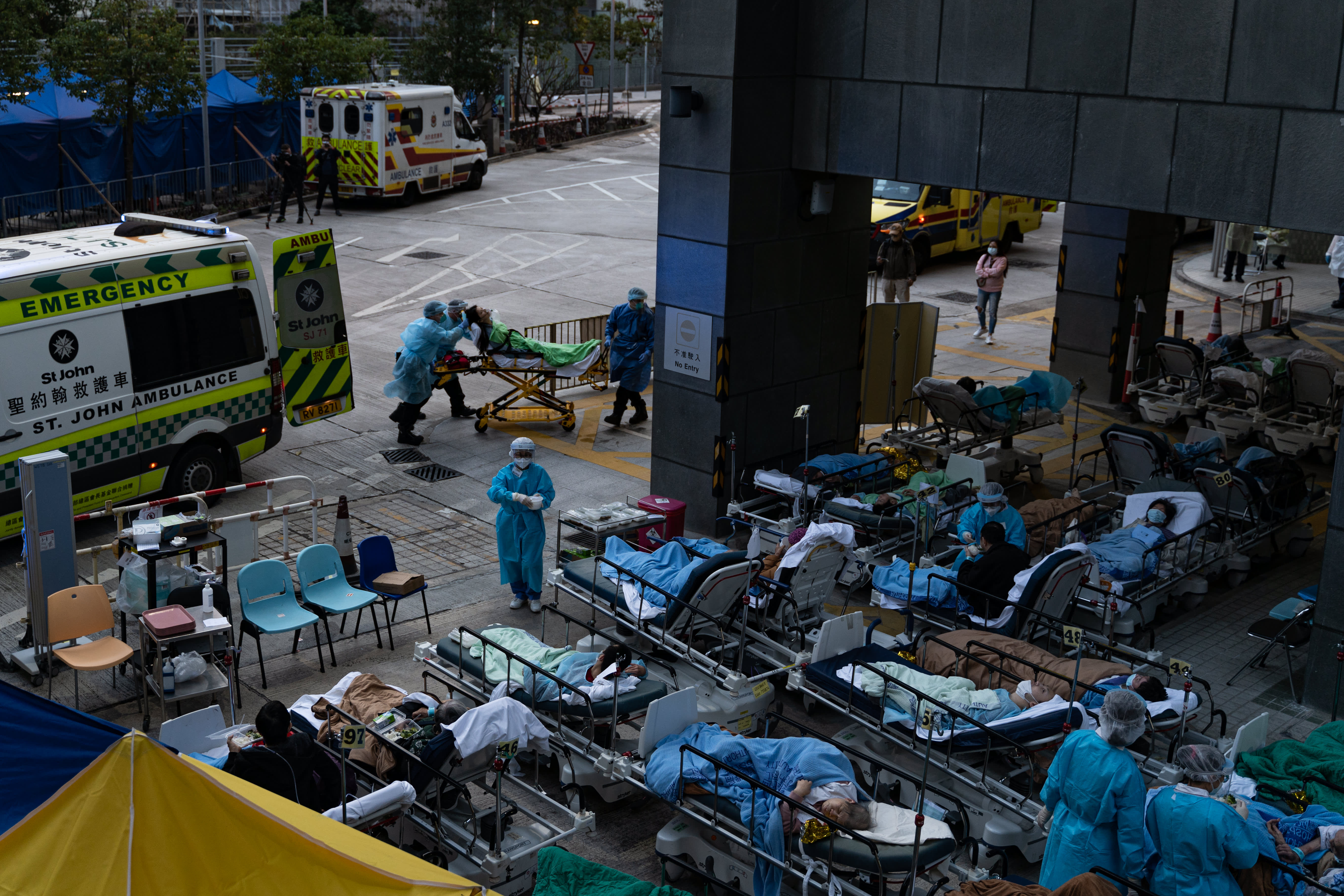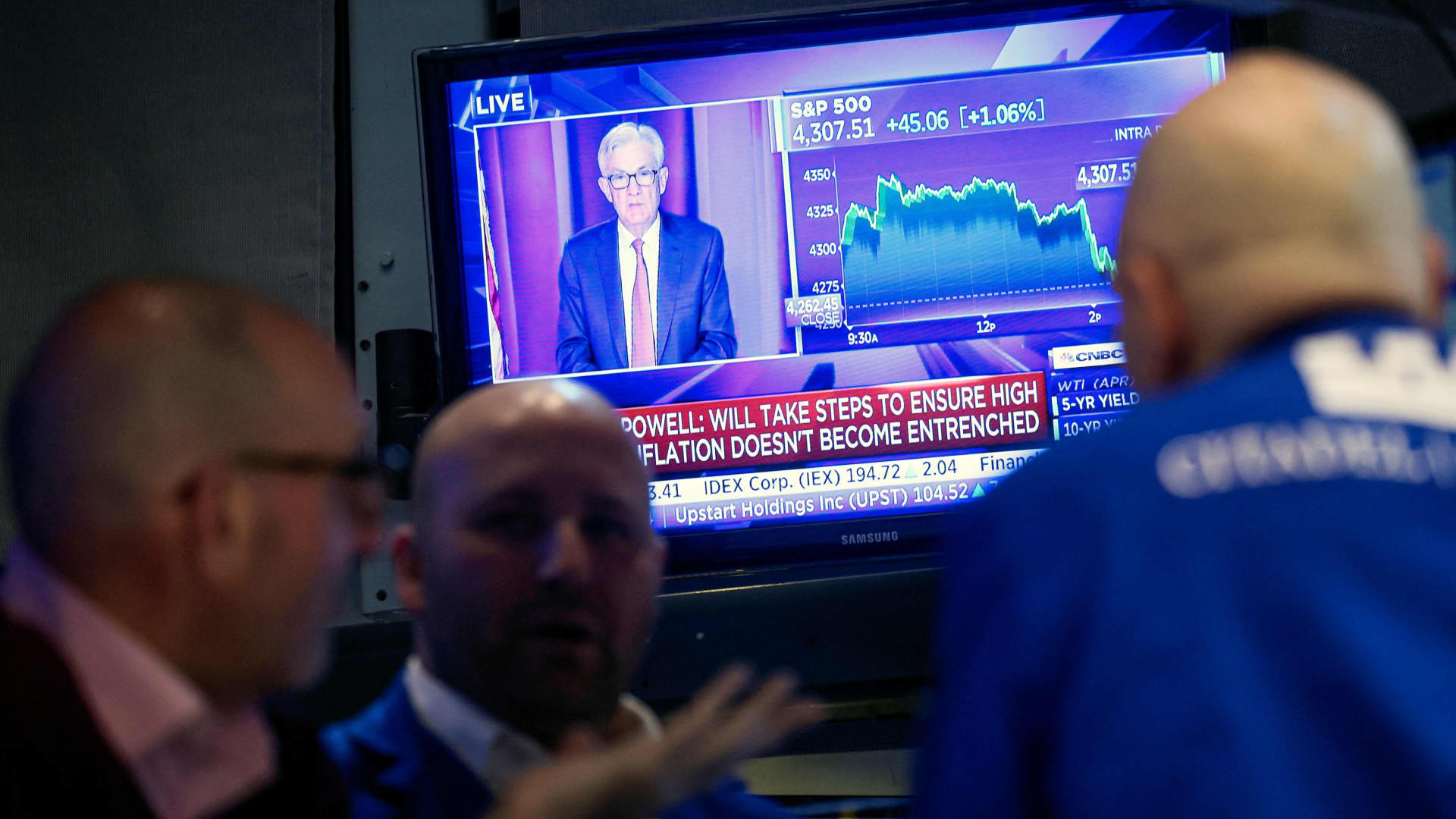Hong Kong's Hang Seng index drops more than 3% following Wall Street tumble
Shares on Wall Street declined sharply overnight, with the Dow Jones Industrial Average seeing its worst day since 2020.
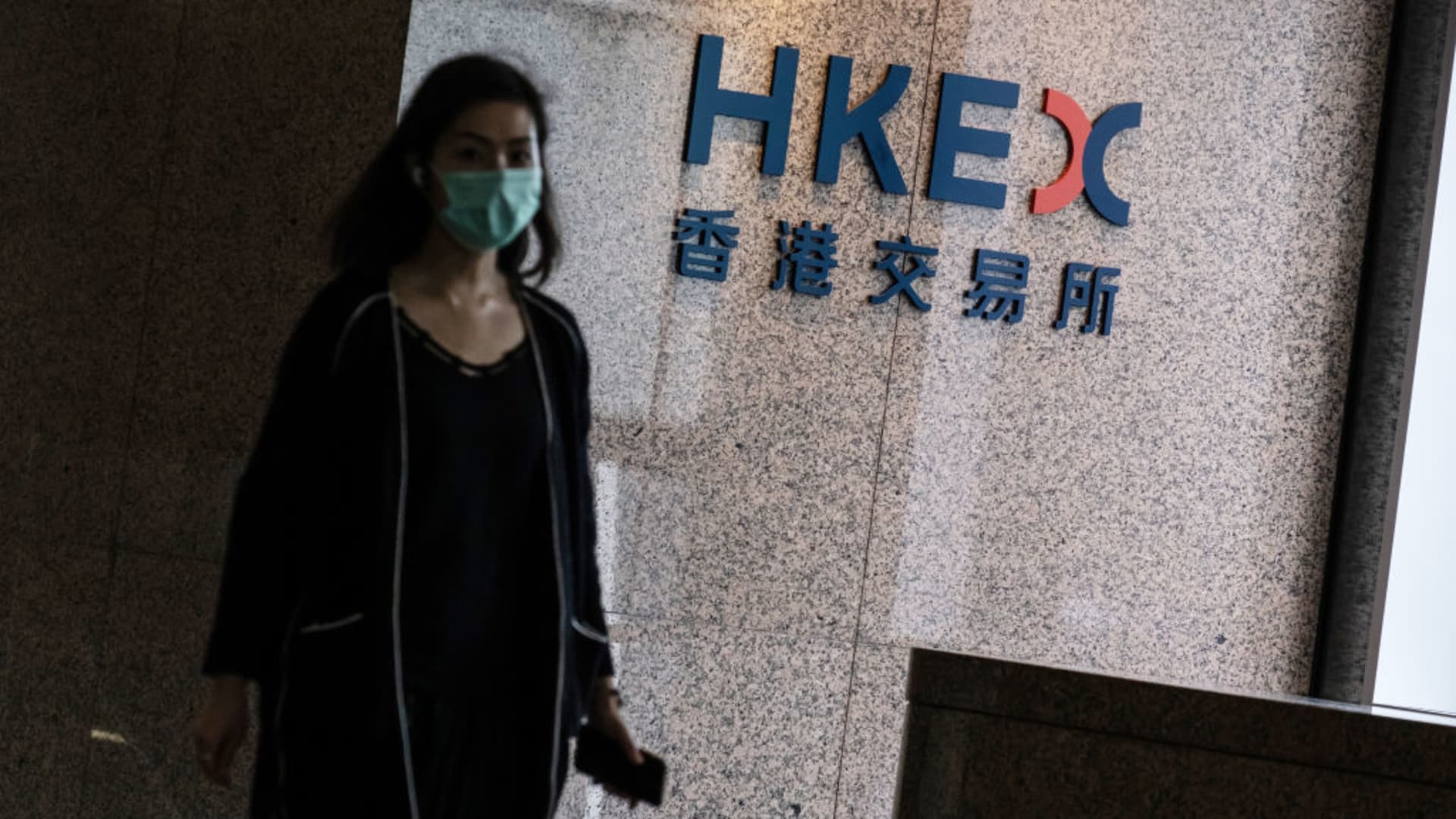
SINGAPORE — Shares in Asia-Pacific largely declined on Friday after an overnight drop on Wall Street sent the Dow Jones Industrial Average to its worst day since 2020.
Hong Kong's Hang Seng index led losses regionally as it fell 3.81% to close at 20,001.96. In mainland China, the Shanghai Composite slipped 2.16% to end the trading day at 3,001.56 while the Shenzhen Component shed 2.141% to 10,809.88.
"In Asia of course we're very much influenced by what the U.S. Fed does and the U.S. economy but now we face the zero-Covid problem from China," Richard Martin, a business consultant and managing director at IMA Asia, told CNBC's "Street Signs Asia" on Friday.
Data shows China's recent Covid lockdowns are hitting more than just Beijing and Shanghai, where the bulk of new infections have been found.
"A lot of the components and materials come out of China, so in addition to weak demand from China, we're going to have a shortage of components from China which on the supply side into the markets across Asia will stop factories running," Martin said.
With no obvious news flow to explain the sharp reversal, it seems instead that the relief of Powell indicating 75bp moves were likely a step too far gave way to a renewed focus on high inflation and a challenging growth outlook.
Taylor Nugent
economist, National Australia Bank
Technology stocks in the region sold off, following the tech-heavy Nasdaq Composite's nearly 5% drop overnight stateside.
Shares of Tencent declined 4.69% while Alibaba fell 6.57% and Meituan slipped 4.68%. Hong Kong's Hang Seng Tech index dropped 5.23% to 4,036.26. The broader risk-off sentiment also extended to electric vehicle stocks, with Xpeng plunging 9.84% while Nio shed 11.47%.
In Japan, shares of conglomerate SoftBank Group dropped 2.27%. South Korea's Kakao slipped 5.28% while industry heavyweight Samsung Electronics declined 2.06%.
Other Asia-Pacific markets mostly dip
South Korea's Kospi dropped 1.23% on the day to 2,644.51. The S&P/ASX 200 in Australia shed 2.16% to close at 7,205.60. Singapore's Straits Times index slipped 1.39%, as of 4:20 p.m. local time.
Japanese stocks bucked the overall trend regionally as they returned to trade on Friday after being closed for holidays much of this week. The Nikkei 225 closed 0.69% higher at 27,003.56 while the Topix index gained 0.93% to 1,915.91.
Stock picks and investing trends from CNBC Pro:
MSCI's broadest index of Asia-Pacific shares outside Japan fell 2.74%.
Overnight on Wall Street, the Dow Jones Industrial Average plunged 1,063.09 points — or 3.12% — to 32,997.97. The S&P 500 fell 3.56% to 4,146.87.
Thursday's moves on Wall Street were a sharp reversal from a Wednesday rally after the U.S. Federal Reserve increased its benchmark interest rate by half a percentage point, in line with market expectations and also the biggest hike in two decades.
Fed Chairman Powell also indicated raising rates by 75 basis points at a time is "not something the committee is actively considering."
"With no obvious news flow to explain the sharp reversal, it seems instead that the relief of Powell indicating 75bp moves were likely a step too far gave way to a renewed focus on high inflation and a challenging growth outlook," Taylor Nugent, an economist at National Australia Bank, wrote in a Friday note.
Currencies and oil
The U.S. dollar index, which tracks the greenback against a basket of its peers, was at 103.617 after a recent jump from below 103.
The Japanese yen traded at 130.50 per dollar, weaker as compared to levels below 130 seen against the greenback earlier in the week. The Australian dollar was at $0.7081 after yesterday's decline from levels above $0.721.
Oil prices were higher in the afternoon of Asia trading hours, with international benchmark Brent crude futures up 0.54% to $111.50 per barrel. U.S. crude futures also gained 0.49% to $108.79 per barrel.

 UsenB
UsenB 








